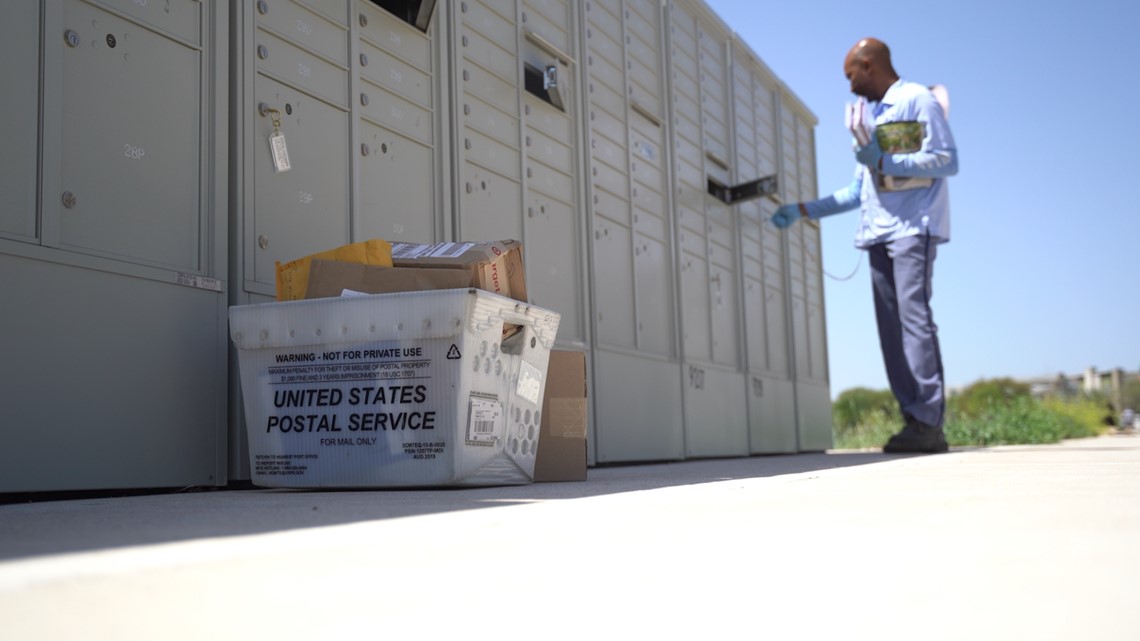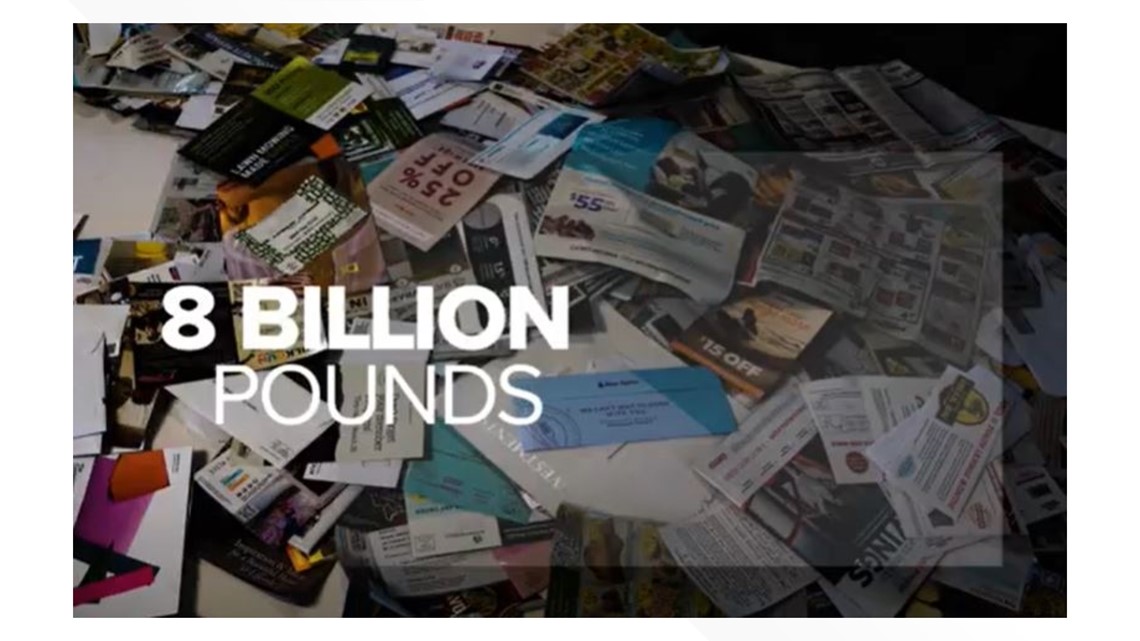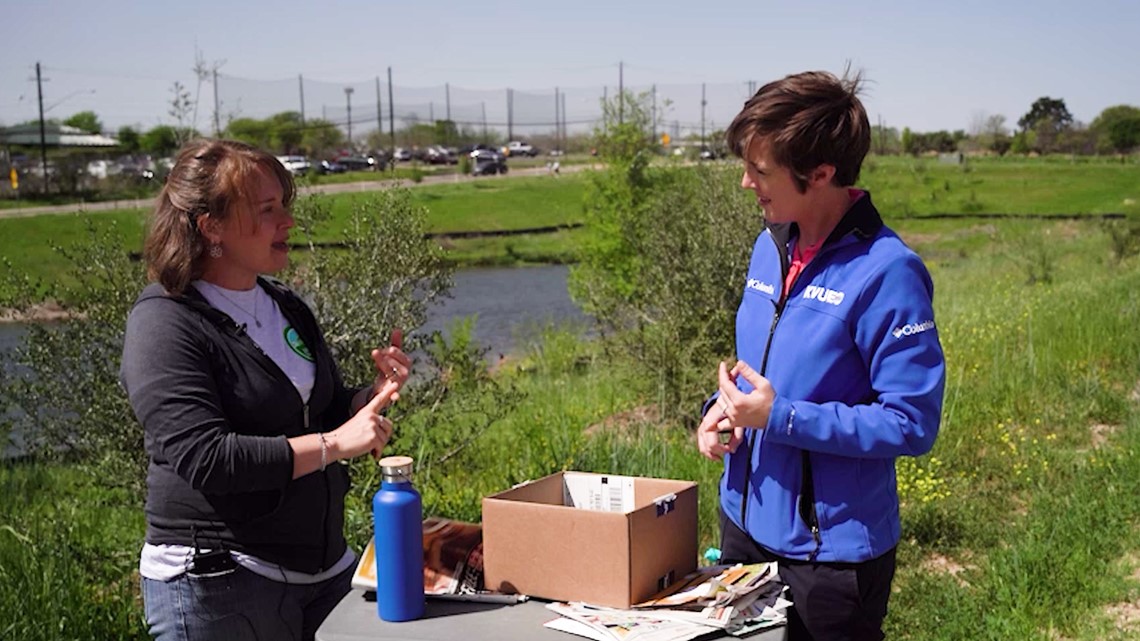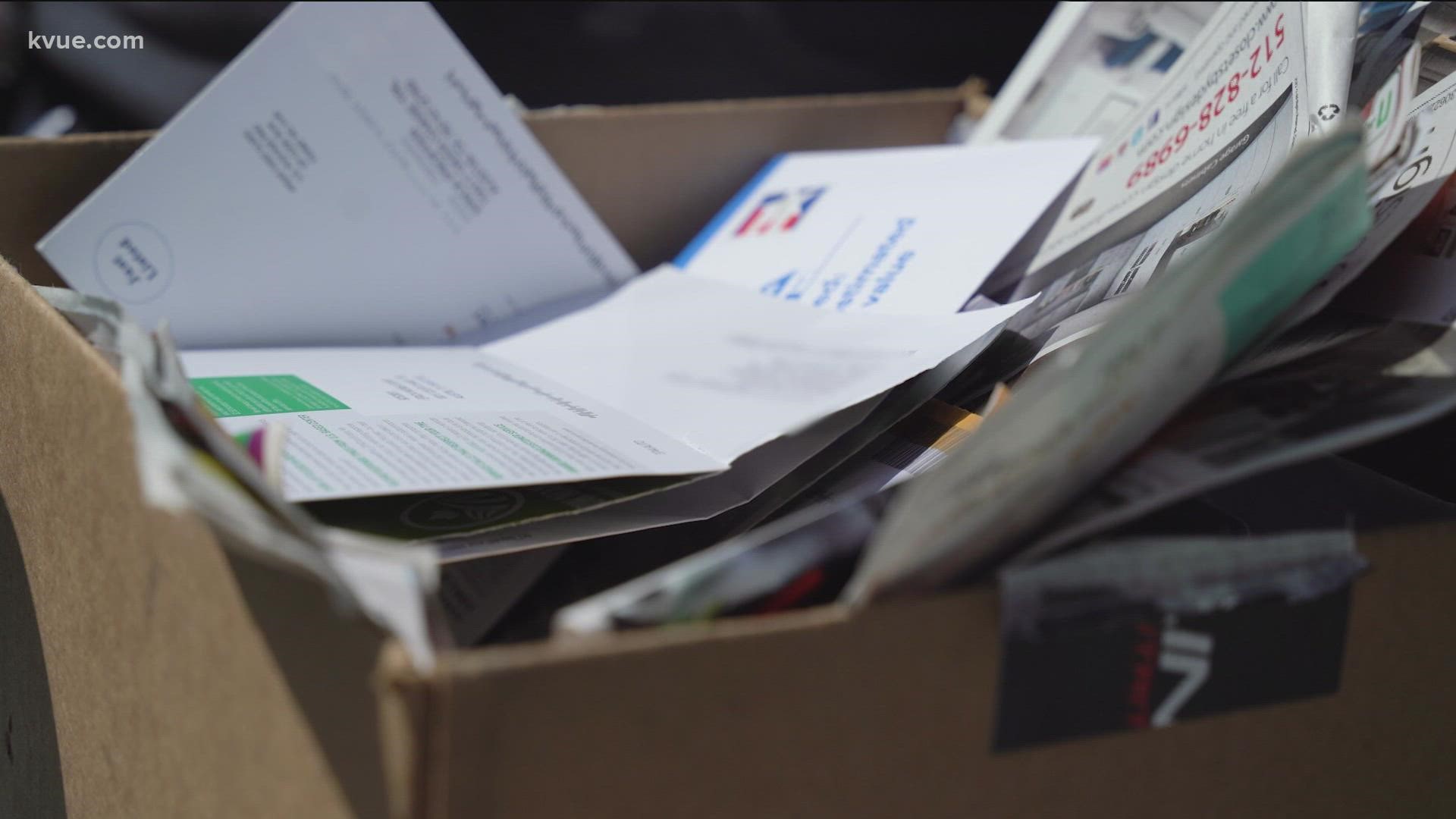TEXAS, USA — Tired of all the coupons, catalogs and credit card applications clogging your mailbox?
Some call it “junk mail.” Others say it’s necessary, benefits local businesses and keeps postage rates as low as possible.
The KVUE Defenders asked its viewers their thoughts on junk mail. About 70% said they "hate it," while 27% said it doesn't bother them.
The KVUE Defenders looked at how this mail gets to you, its impact on the environment and if you can opt-out.
How marketing mail, or "junk mail," works
“No one wants to be in a situation where the consumer's like, ‘Oh, my gosh, this is a piece of junk. Let me just toss it in the trash.’ That is not what the industry is about,” Senny Boone, Association of National Advertisers senior VP, said.
Boone represents people in marketing and advertising. She said the local advertisements benefit the community.
“They're going to show you something that's very time-sensitive, very local, something you can act on quickly in your area. And that might be really important to a particular family, someone who's clipping coupons, someone who's really looking to save some money right now,” Boone said.


Names and addresses are for sale from several data brokers. Data brokers get information from public documents and online activity. The information is compiled to develop a profile including data on housing, income and other demographics.
For example, if an advertiser wants to target homeowners in a certain ZIP code, they can pay for a list of names and addresses of people with homes in that area. It would filter out those who live in apartments.
In 2021, marketers' postage totaled more than $14.6 billion.
In the first quarter of fiscal year 2022 – Oct. 1, 2021, through Dec. 31, 2021 – the U.S. Postal Service lost money overall, but not for marketing mail.


Marketing mail revenue for Q1 was $4.5 billion. It’s a 7.3% increase compared to Q1 2021.
“Marketing mail has generally proven to be a resilient marketing channel, and as the economy has shown a recovery, its value to U.S. businesses remains strong due to healthy customer returns on investment and better data and technology integration,” a USPS press release showed.
The KVUE Defenders found USPS gives licensed service providers updates to addresses. Those providers are some of the nation’s largest data brokers.
The privacy act on the change-of-address form shows, “We do not disclose your information to third parties without your consent, except to facilitate the transaction, to act on your behalf or request, or as legally required."
“This includes the following limited circumstances: to a congressional office on your behalf; to financial entities regarding financial transaction issues; to a USPS auditor; to entities, including law enforcement, as required by law or in legal proceedings; to domestic and international customs relating to outgoing international mail pursuant to federal law and agreements; and to contractors and other entities aiding us to fulfill the service (service providers),” the USPS website shows.
The environmental impact of junk mail
The unsolicited mail adds up.
The KVUE Defenders had four people collect their marketing mail throughout March. Even during what marketers call the “slow season," our mail pieces piled on the table.
The U.S. Environmental Protection Agency’s latest data shows all marketing mail created in 2018 would weigh more than 8 billion pounds – 8,090,965,022 pounds to be exact. That’s nearly 25 pounds per person for only one year.


"I think it can be overwhelming," said Perry Bedford.
He's the vice-chair of the Austin Environmental Commission, a group that acts as a liaison between the community and the Austin City Council.
"If you don't have a recycling program, what are going to do with the mail? You're going to throw it away," he said. "So it impacts the carbon input-output that we're doing daily."
How can you opt-out of junk mail?
What if there was a way to slow down all that mail, or stop it altogether?


Taylor Youngblood did. Youngblood teaches her Austin neighbors how to ease the burden by writing about it. Not on paper, of course. She uses an online blog titled "a little more green."
Catalog Choice is a website Youngblood uses to help reduce unwanted marketing mail.
She signed up with variations of her name. For example, some of KVUE Defenders reporter Erica Proffer's mail might show different names like "Erica Proffer, Erica N. Proffer or Erica Nichole Proffer.
"So I have my maiden name first and last name, name first, middle last because they'll do that too," Youngblood said. "Sometimes you'll even get the middle initial. So, that's just three with my maiden name."


And this is not a one-stop shop. The company website shows they have “no control” over getting your name off marketing lists.
“Catalog Choice sends merchants your catalog opt-out request on your behalf, but please note that we have no control over how and when merchants will process your opt-out request,” a note on the company's website read.
So, Youngblood uses other opt-out website services, too, like DMAchoice.org, DirectMail.com and OptOutPrescreen.com.
The USPS told KVUE in an email they recommend people opt-out using DMAchoice.org. Also, the USPS website shows you can write “refused” on any mail from within the U.S.
Youngblood also calls individual companies asking for removal. She said it’s worth it to her.
But we want to know why it might be worth it to keep that "junk mail" in circulation.
A necessary evil: Why junk mail is important
"Well, it's real simple," said Rep. Pete Sessions.
His work on post office legislation goes back 20 years. The congressman was part of reforming the post office this year. He listened as the postmaster general said the system was failing, as the post office kept losing money.
The post office doesn’t offer its own opt-out service. It’s incentivized to keep your address on marketing lists.
Last year, marketers' postage totaled more than $14 billion. The postal service got more than $4 billion last quarter alone.
"Do you think when it comes to that marketing mail, the unsolicited ones, do you think that we should have more in order to bring in more revenue?" asked KVUE's Erica Proffer.
"The question as it relates to mail that might be sometimes called junk mail, sometimes it's called advertising," Sessions said. "You have to be your own person to decide that. But it is essential. That small business has an attribute to be able to sell their products."
Congressman Sessions and Boone, the VP at the Association of National Advertisers, encourage you to keep the ads coming.
"It adds to the robustness or the revenue that is available and the post office has to balance that entire process," Sessions said.
PEOPLE ARE ALSO READING:

